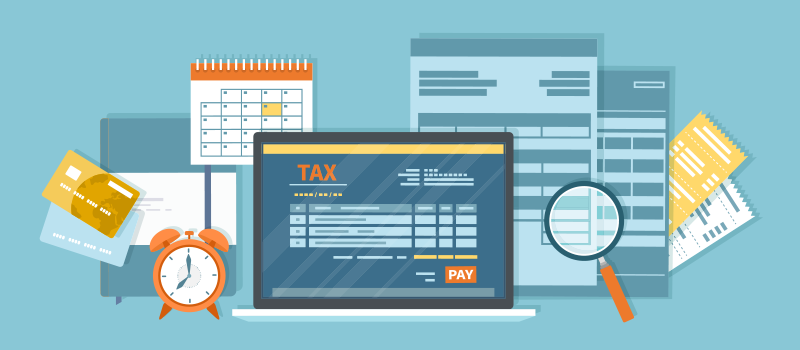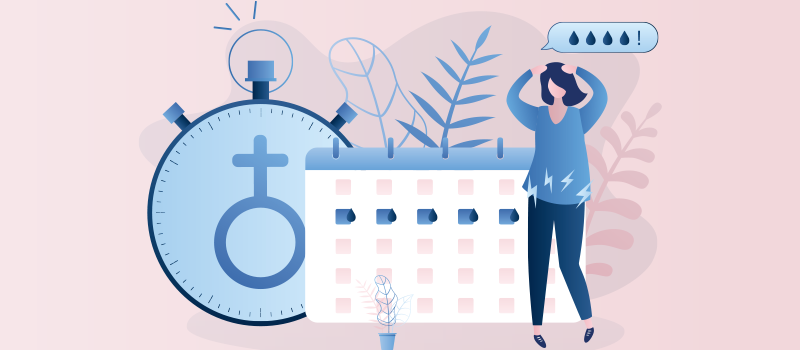What’s the Buzz
The Bee Healthy Blog
A Guide to Getting Birth Control Prescribed by a Pharmacist

Parenthood is unique for each person, and every woman or man is entitled to when, how, or if they want to begin that journey. Birth control is available in many forms catering to individual preferences and medical history. However, ease of access can still pose a challenge.
A demanding work and school schedule, family responsibilities, lack of health insurance, and time-consuming doctor appointments are a few obstacles women have to face when getting birth control. The good news is that many states have recently implemented laws authorizing pharmacists to prescribe contraceptives. Expanding access to birth control will reduce the number of unintended pregnancies while promoting women’s health overall.
In this article, we will go over some useful tips if you are interested in getting birth control prescribed to you by a pharmacist.
How do I get a birth control prescription from a pharmacist?
If you live in one of the states that allow pharmacists to prescribe hormonal birth control, you can have it prescribed by a pharmacist without a doctor’s prescription. Currently, 21 states and the District of Columbia allow pharmacists to prescribe birth control: Arizona, Arkansas, California, Colorado, Delaware, District of Columbia, Hawaii, Idaho, Illinois, Maryland, Minnesota, Nevada, New Hampshire, New Jersey, New Mexico, North Carolina, Oregon, South Carolina, Utah, Vermont, Virginia, and West Virginia. Other states have similar legislation regarding reproductive health in progress.
If you live in one of those states, you can get birth control prescribed by a pharmacist at a local pharmacy or online pharmacy. Nurx, Hers, SimpleHealth, Wisp, and Lemonaid are popular online pharmacies with birth control services, including birth control pills.
Use this website to see which pharmacy locations prescribe hormonal birth control near you.
While learning if your state allows pharmacists to prescribe contraceptives, you should remember that different states have laws and regulations outlining restrictions such as age and the types of birth control pharmacists can prescribe.
For instance, for California residents, there is no age restriction or requirement to follow up with primary care physicians. Also, pharmacists can prescribe any type of self-administered hormonal contraceptive in addition to emergency contraception.
On the other hand, Colorado has more restrictions on this process. For example, pharmacists can only prescribe birth control pills and patches. And to receive birth control prescriptions from pharmacists, you must be at least 18 years old and follow up with your health care provider within 3 years.
Once you've found a pharmacy that provides this birth control service, you should call to see if you have to make an appointment or if walk-ins are accepted.
When you arrive at the pharmacy, you must complete a self-screening questionnaire. The pharmacist will evaluate your medical history, medication list, and blood pressure reading to ensure that hormonal birth control is safe for you.
Many people automatically think of oral contraceptives when referring to "birth control," but there are several birth control options besides birth control pills; the law also allows pharmacists to prescribe vaginal rings, transdermal patches, and injectable hormonal contraceptives.
Your pharmacist can be a great resource if you are unsure and need more education about different contraceptive methods. They can help you choose a method of birth control that fits your personal preference and is safe for you, with the added benefit of convenient pharmacy access.
The pharmacist can also answer questions regarding other birth control methods, such as IUDs or arm implants, or even make referrals for other birth control options.
How safe and effective is getting birth control prescribed by a pharmacist?
With appropriate use, hormonal birth control is very effective, so efficacy is not a big concern. Regarding safety, pharmacists are trained to determine if it is safe for the patients to receive hormonal birth control. Drug interactions could be another potential problem, and pharmacists can review a medication profile thoroughly to prevent this.
The initiative of a pharmacist prescribing hormonal contraception is to expand access to various birth control options for women across the country. Safety is still an utmost priority, and pharmacists receive extensive training on all hormonal contraceptive variations, like how to prescribe self-administered hormonal contraceptives.
State laws and regulations authorize pharmacists to prescribe hormonal contraceptives to women who meet certain medical eligibility criteria. The self-screening questionnaire must be completed at the appointment with the pharmacist. The questionnaire provides information about a person’s medical history along with medication use, including prescriptions and over-the-counter medications. The pharmacist may check blood pressure during this visit. Though birth control pills and other types of hormonal contraceptives are relatively well-tolerated for most women, if the pharmacists have any suspicion of any risk factors, they will refer the patients to their primary care provider.
Along with prescribing hormonal contraceptives, pharmacists provide education on proper contraceptive use, which is essential for patient safety. Studies have shown evidence of the safety and efficacy of this practice; women who receive birth control prescribed by pharmacists are more likely to be adherent.
How does allowing pharmacists to prescribe hormonal contraceptives expand access and reduce barriers to care?
Getting pharmacists to prescribe hormonal contraceptives this way saves time since you can walk in or make an appointment at a local pharmacy that provides this service. Even if an appointment is necessary, the wait time at a pharmacy is significantly less than at a doctor's office. Remember that online pharmacies are also an option if they have the prescribing authority for hormonal birth control in your state.
Younger women may be more comfortable with a pharmacist, especially if they haven't previously been prescribed hormonal birth control. In a less formal pharmacy setting, they are more willing to ask questions and raise concerns, ultimately improving patient compliance and safety.
The American College of Obstetricians and Gynecologists (ACOG) also provides a statement of support for over-the counter-access to hormonal contraception without age restrictions. Compared to prescription-only birth control, over-the-counter access to contraceptives contributes to lower rates of unintended pregnancies while increasing the continuation rate of hormonal birth control. From the consumer standpoint, a national survey in 2011 shows that over two-thirds of women (n=2,000) between 18 and 44 are in favor of over-the-counter access to contraceptives.
How much do birth control pills cost when prescribed by the pharmacy?
One of the most commonly asked questions is about how much birth control pills cost. With health insurance under the Affordable Care Act (Obamacare), a wide range of FDA-approved birth control is typically covered by health plans, meaning you can get birth control for free or at a very low cost. This would include all types of hormonal birth contraceptives, including the oral birth control pill, implants, IUDs, vaginal rings, the patch, the shot, diaphragms, and emergency contraception.
However, your health insurance plan may only cover specific brands or their generic versions. You can call your health plan’s customer service line to find out if they cover your needs. Your local pharmacy can also help answer your coverage questions by running test claims or calling the health plan on your behalf.
Your healthcare provider may also help you get certain brand-name birth control pills or other medications if they are beneficial for your overall and reproductive health by requesting prior authorization from your health plan. By doing so, the brand name birth control pill cost reduces significantly to free of charge or a very low cost.
Also, with the Affordable Care Act, female condoms and spermicides should be covered with no out-of-pocket cost. Ask your pharmacist if you have any questions about the cost and coverage for other methods of birth control.
Can I use my health insurance to pay for birth control prescribed by a pharmacist?
Similar to the age and requirement to follow up with a primary care provider, health insurance coverage for hormonal contraceptives prescribed by a pharmacist varies depending on the state that you live in. For example, Oregon state law includes coverage for this reproductive health service provided by pharmacists. For Washington and New Mexico, the state law does not explicitly include insurance coverage. Pharmacies that provide birth control services should be able to provide you with the most accurate answers regarding cost and insurance coverage.
Planned Parenthood health centers are also a good resource if you don’t have insurance or if your birth control is not covered by your insurance.
Can a pharmacist refuse to prescribe hormonal birth control?
The following six states passed laws that allow pharmacists to deny prescriptions for birth control or Plan B based on their religious or moral objections: Arizona, Arkansas, Georgia, Idaho, Mississippi, and South Dakota.
In addition to denying prescriptions for emergency birth control pills and hormonal contraceptives, pharmacists in those states are not required to provide patients with an alternate route to have those prescriptions filled.
Oregon, Texas, Alabama, North Carolina, Pennsylvania, New York, and Delaware are the seven states that allow pharmacists to deny prescriptions for birth control and backup birth control pills like Plan B. However, pharmacists in these states are required to refer patients to another pharmacy to have the prescriptions filled.
Do I need a prescription for Plan B?
Currently, most emergency contraception, or “the morning-after pill,” is available over the counter; you will not need a prescription from a healthcare provider or a visit to the doctor’s office.
As of 2013, there is no age limit for Plan B One-Step. Plan B One-Step and similar products are available on the pharmacy shelves instead of behind the counter, as they were previously. This means you no longer need to ask a pharmacy staff to make a purchase.
Removing the age restriction and increasing access are efforts to promote reproductive health in which community pharmacists play an essential role, especially with young women who may feel more comfortable using pharmacists as resources.
Which states require parental consent for birth control?
There is no blanket requirement in any state regarding parental consent for contraceptive services.
In most states, teenagers can get birth control, including birth control pills, without having to obtain consent from their parents. To learn about the specific details, you should call a doctor’s office to learn about the rules and regulations in your area.
Sources:
https://www.cdc.gov/dhdsp/pubs/docs/cpa-team-based-care.pdf












SOCIAL